Review for Quantum Leap: Season 1
Introduction
It's amazing what you can find in Matalan for just £5, and I'm not just talking about clothing hand-stitched together by three-year-olds in Bangladeshi sweatshops that disintegrate after the first wash, or those weird cushion cubes that look as if they may be a smart idea in additional portable seating, but that no one with any self-respect will sit on. Then again, I'm admitting a whole lot here as a reviewer. I shop at Matalan. It's like confessing at an AA meeting. And there's no simple excuse like, 'I was just browsing', or 'I just happened to pop in'. To shop at Matalan, you have to be a member. You have to have shelled out on a membership card. You have to have the intention of shopping there. It's like being a member of the least exclusive club on the planet. Walk in, tip a wink to the security guard, and slip a 50p off coupon into his palm, discreetly of course, in the hope of getting a till near the exit on your way out. It's not the bargain goods that are shop-soiled, it's the customers. Anyway, I got Quantum Leap, season 1 for £5. Yes, for those of you with self-respect, they sell DVDs in Matalan. When there's only HMV left on the high street, you don't have a lot of alternatives.
It's hard to remember now in this television era of wall-to-wall sci-fi and fantasy, but back in the late eighties, sci-fi was a rare beast on television. I can only remember two shows, Star Trek: The Next Generation, and this, Quantum Leap, and it's a lucky thing that I liked both. Of course Quantum Leap was less a sci-fi show, especially at first, than it was the most freeing medium on television. It followed scientist Sam Beckett, who after a time travel experiment that went a little kaka, was left bouncing around in time, leaping from life to life, putting right what once went wrong, in the hope of someday making it back. Fortunately he had a guide on his travels, a hologrammatic projection of his best friend Al, who with the help of hindsight and the history books could point out just what needed fixing. What this basically meant that every week offered a new story, new characters, new genres, whether it be sci-fi, comedy, drama, horror, indeed whatever took the writers' fancies. And with Sam 'inhabiting' a new life each week, it certainly made for some interesting stories. Quantum Leap ran for 5 years, but this first season with just nine episodes is more proof of concept than it is a full season. But it still contains some of my favourite episodes from the whole run.
Playback presents all nine episodes spread across three discs, and unlike the other seasons, there are extra features here as well.
1. Genesis Parts 1 & 2
Near the close of the 20th Century, Al Calavicci and technician Gooshie try in vain to stop Nobel Prize winning physicist Sam Beckett from testing his theories. He steps into the Quantum Leap Accelerator Chamber and vanishes. In 1956, Air Force test pilot Tom Stratton wakes up not feeling himself, literally. He doesn't know where he is, who he is, or why he's there. All he knows is that he isn't Tom Stratton, that he shouldn't be in bed next to a heavily pregnant wife, and that he doesn't recognise the face that is looking back at him from the mirror. What's worse is as a test pilot, he hasn't the faintest idea how to fly, and he's scheduled to take the X-2 past Mach 3 next Monday. The final straw might be that he's started seeing ghosts, or rather one ghost, a rumpled looking man with a hangover, wearing a tuxedo, smoking a cigar.
2. Star-Crossed
Sam leaps into a rather rumpled and bohemian looking professor, Gerald Bryant, who somehow has a fascination for the predominantly female students in his English Literature classes. Al tells him that all he has to do to leap is to prevent Bryant making the mistake of his life and marrying one of his students, Jamie Lee, thus preventing her from making an even larger mistake. But Sam has just spotted the love of his life, Donna Eleese, the woman who left him at the altar. But this is 1972, Donna's still a student at college, and if Sam can fix whatever trust issues led to Donna's mistrust of commitment, he may just get a second chance at happiness. But Al tells him that interfering in the past for personal gain is against all the rules, his rules.
3. The Right Hand of God
Clarence 'Kid' Cody was a small time prizefighter who made more money from taking dives than dishing out punishment. Not good at the best of times, but when the nuns of St Mary who aimed to build a chapel and homeless shelter on the strength of his winning abilities, inherited his contract, it was practically disastrous. But now that Sam has leapt into Cody's life, he can change all that. All he has to do is beat 'Tiger' Joe Jackson to prevail. Actually he has to avoid getting his kneecaps shot off by the guy who's betting on him taking a dive in the first round. But first of all, he has to learn how to box.
4. How The Tess Was Won
It's 1956, hardly the era for women's lib, but for Tess raised by her father Chance on a ranch, she thinks that she's perfectly capable of inheriting and running the spread by herself. He knows that she will have to get married and settle down, but she won't budge. So they make a deal, if any man on the ranch can outdo her in the fundamentals of being a cowboy, she'll marry him. But she gets to pick the opponent. She thinks she's got an easy victory when she chooses Doc, the visiting veterinarian who's currently covered in mud as he loses a wrestling match with a piglet. That's Doc, the guy that Sam Beckett has just leaped into.
5. Double Identity
Now Sam's in the Family way. He's leaped into a hitman named Frankie, who's currently getting close to a hairdresser named Theresa. The trouble is that Theresa is Don Gino's current bit on the side, and if he finds that the woman he is cheating on his wife with is cheating on him, then the guy she is cheating with is going to be singing castrato. And Sam doesn't even speak Italian. But on the bright side, Al and Ziggy have a plan to leap him back home. The trouble is that he needs to be in two places at once for it to work.
6. The Colour Of Truth
Leaping into a black man in the Deep South in 1955 isn't a smart move. Not realising that you've leapt into a black man, and sitting down at a bar in a whites only café is positively suicidal. Sam wonders if he isn't there to start the civil rights movement, but Al reckons that he's only there to stop Miss Daisy from driving herself in front of a train. But if Sam as Jesse Tyler can get Miss Melanie Trafford to rethink her attitudes, maybe he'll be able to do both.
7. The Camikazi Kid
Sam's leaped into the rebel without a clue. Cam Wilson is a very spotty teen that dotes on his family, yet races his mother's station wagon against hot rods in the hope of gaining street cred, or whatever it is that they called street cred back in 1961. It could be that all he has to do to change history for the better is to wean Cam off the junk food and clear up his complexion. But when Al tells Sam that Cam's sister Cheryl is about to marry an alcoholic wife-beater, it takes on a more personal resonance for Sam.
8. Play It Again Seymour
It's 1953, and Sam's leaped into a Humphrey Bogart look-alike. With a face like that, there was nothing else that Nick Allen could be other than a private detective, but his career handling divorce cases is about to go sour, as his partner Phil has just been murdered. But Sam's having déjà vu, or rather he knows exactly what will happen next in the investigation. Even if he is a time traveller from the future, why would the Swiss-cheesed brain of a physicist from the future remember in perfect detail the events of a small-time murder investigation from the year he was born? At least there's a femme fatale…
Picture
Quantum Leap's 4:3 transfer is initially quite promising, with the pilot episodes shot on film and transferred to DVD that way. The image is clear and sharp throughout, there's a hint of grain, and a smidgeon of print damage, but it's all quite pleasant. Later on in the run, things get a little variable, with the softness indicative of a videotape source occasionally apparent. There are also the inevitable variations in quality when it comes to stock footage, often used to set the mood of an era, or in the case of the pilot, add authenticity with actual test flight footage. Disc 1 quantum leapt a few seconds into the future around 18 minutes into episode 2 when played on my Sony player, but was fine on all my others.
Sound
Quantum Leap gets a DD 2.0 mono English audio track. The dialogue is clear enough throughout, but should you require them, subtitles are available. The biggest bone of contention with Quantum Leap was the original period music that was selected to go with many of the episodes. US copyright law being the utter morass of idiocy that it is, it means that releasing classic television on DVD requires paying for the rights for that music all over again. Not all studios or distributors can afford that, and Quantum Leap was one show that had a lot of muzak substituted on the US release. The UK releases of Quantum Leap on DVD were a bit hit and miss, with later seasons sourcing the US discs and inheriting the muzak. This first season of the series has the original music though.
Extras
I think this was the only Quantum Leap collection to get any significant extras of direct relation to the material on the disc. Originally released in 2004, this 2009 re-release packages the three discs into an Amaray sized case, with two discs either side of a central hinged panel. There is also a 28-page catalogue of other Playback releases for you to look through. All three discs get animated menus.
Disc 1's big contribution is the 21-minute retrospective documentary, A Kiss With History, with interviews with Scott Bakula (Sam Beckett), Dean Stockwell (Al Calavicci), and creator Donald P. Belisario. This is well worth a watch as there are some wonderful anecdotes to enjoy.
All episodes across the three discs have an optional Quantum Knowledge Episode Introduction, where Scott Bakula pops up to share a little relevant trivia before the episodes start to play.
There are three brief Easter Eggs on Disc 1.
I get the feeling that these extras, at least the Quantum Knowledge Episode Introductions were originally feted to be across all five series, but alas that wasn't to be.
Conclusion
It's still Quantum Leap, a mainstay of my appreciation of all things sci-fi since it first aired back in 1989. The thing about television sci-fi though, is that it either becomes timeless, or it dates very quickly. It could be something simple like fashions, special effects, and music, or it could be something subtler. The original Star Trek is very much a show that has transcended its era, and with its time travel storyline, I fully expected Quantum Leap to join it as a veritable classic. But watching these first eight episodes after some 21 years, I find that Quantum Leap has dated. It's still great fun, it's still one of the best sci-fi shows ever made, and it still has the coolest concept for an episodic television show that it could possibly have. But when I watched these episodes, lovingly written and performed, stories that effortlessly evoked the period they were set in, something about them still hit me with a disclaimer that warned me that I was watching eighties television first and foremost, and sci-fi second.
The most obvious thing is the pacing of the stories. With modern US television saturated with ads, most TV shows have to tell their stories in extra-efficient sub-40 minute slots. The 45-minute plus time frame that Quantum Leap has allows for stories that can be told much more sedately, and with greater character growth. The episodic nature that is Quantum Leap's strength seems a little old fashioned when placed against modern shows that espouse long running story arcs, but that is the whole point of Quantum Leap, with Sam's brain being reset by every leap, and starting again from square one with each episode. But the thing that dates the show the most is the twee-ness of it. When it comes down to it, the messages of most of the episodes are very simplistic and heartfelt. It has a moral certitude that doesn't allow for ambiguity of character, or balanced storytelling, and sometimes the moral message gets hammered home with the subtlety of a firebrand preacher. On a couple of occasions I found myself wincing at the cheesiness of it, something I never did back when it was first broadcast (unless Sam leapt into a woman. A six-foot guy in a dress and high heels induces a whole different set of winces, although thankfully not in this season). Quantum Leap is still great entertainment, just not as great as I remember it to be.
Yet I still find this first season of Quantum Leap to be the best of the lot. It's when they were finding their feet with the format, telling stories first and foremost instead of pushing the message of the week. As mentioned Sam doesn't leap into any women, the show isn't complicated by showing what's happening back in the future at the Project as happened in later seasons, there aren't any gimmick episodes, and there's none of the Evil Leaper nonsense that served as the nail in the show's coffin. It's just a simple, two man show, Al and Sam, with Sam leaping through time, and Al telling him what to fix, lending moral support. It also starts with the best pilot episode I have seen for any show. Genesis has such a cool introduction to the show's premise, it's so well written, and it has such high production values, that it could have been a theatrical feature film in its own right. It's more of a mystery, and a novelty, as it introduces Sam and Al, and lays the ground rules for this particular storytelling universe. The test pilot story is also as exciting as it is entertaining, with Sam as much a fish out of water as you can get.
Both this and the follow up story, Star-Crossed reveal that Sam has a personal element to his time travelling, wanting to reconnect with his father, and looking for a second chance with the love of his life Donna. The Right Hand of God takes us into Rocky territory, and also makes clear one of the most enjoyable aspects of Scott Bakula's performances in Quantum Leap, in that Sam picks up aspects of the personality of whoever he leaps into, which must have been as much fun as it would have been an acting challenge. Kid Cody isn't the sharpest tool in the shed, maybe even a little punch drunk, while as Doc in How The Tess Was Won, he's as mild mannered as they come. There's more menace in his step and a steely edge when he leaps into hitman Frankie, and measured wisdom when he takes on the mantle of black chauffeur Jesse Tyler. The most impressive performance in this set is actually as Cam Wilson, as Scott Bakula manages to find his inner teen, in quite a subtle but effective way. Of course Play It Again Seymour is just fun, almost as enjoyable as the pilot episode in my estimation.
Of course the show wouldn't be complete without Sam's hologrammatic sidekick Al Calavicci. And while Sam's character would shift slightly from episode to episode, Al's was as steady as a rock, and surprisingly well formed from the get go, with a joyous, and often lecherous twinkle in the eye, an overactive libido, and retina damaging fashion sense. He's also steady as a rock when it comes to friendship and loyalty, and with a strong morality that makes him perfect as Sam's guardian angel. Of course Dean Stockwell is perfect as Al, and it's the chemistry between him and Scott Bakula that has made Quantum Leap so enduring and so loved by its fans.
This first season actually gives a broad cross-section of stories, despite it's short length, and you get a sense of all that Quantum Leap is capable of, as well as some of its weaknesses. The majority of this season does consist of good, solid, and entertaining stories that hit all the right emotional notes. You get the episodes that are more personal to the characters, such as Sam running into his one true love (he'd go back and meet his father and his brother in later seasons). There are the episodes that pay homage to popular movies, with The Colour of Truth not too dissimilar to Driving Miss Daisy, although in this case it does double duty as this season's message episode as well. Unlike later shows, it doesn't oversell the message, and while it is simplistic as so many would be, the civil rights movement is pretty simple to categorise in terms of right and wrong, and there aren't any shades of grey to complicate matters. You have the gimmick episodes, which in later seasons would have Sam leaping into a chimpanzee, or Lee Harvey Oswald, or Marilyn's bodyguard, and even Elvis. These were shows that don't stand up so well, but this season's nominal gimmick episode is one of my favourite episodes of the series, with Sam leaping his way into a Bogart look-alike, and an episode of tongue in cheek film noir. It gets the tone and feel just right, but without ever going into utterly cheesy territory.
Speaking of cheese, we have that too, and this first season's weak point is Double Identity, the mafia tale that has me clenching my teeth in embarrassment for most of the run time. If I'm lying, I'm dying. Although, throughout the season, there are moments of cheese that do get me rolling my eyes a bit now, moments that may have been cute when I first saw them, but now, little kisses with history like correcting Buddy Holly's lyrics, dancing with Michael Jackson, adding to Woody Allen's neuroses just feel unnecessary in the stories. So, I find that Quantum Leap of all shows is looking its age. Still, it is only a sprightly 21, and I find that I'd rather watch it again, than most of what passes for sci-fi on television nowadays. And when it comes to season 1, I still feel that this is the best that Quantum Leap has to offer, especially with that pilot episode, and the pitch perfect Play It Again Seymour.
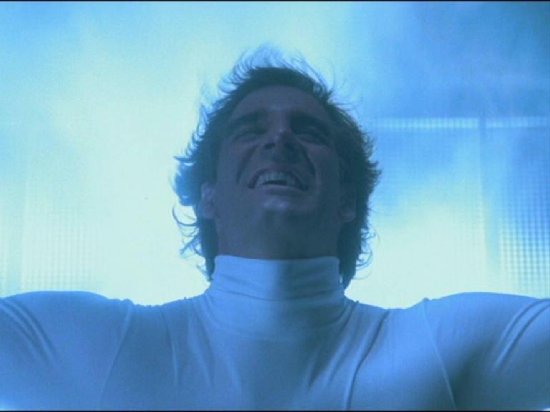
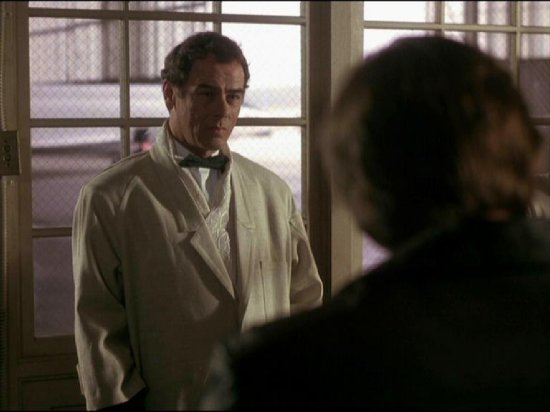
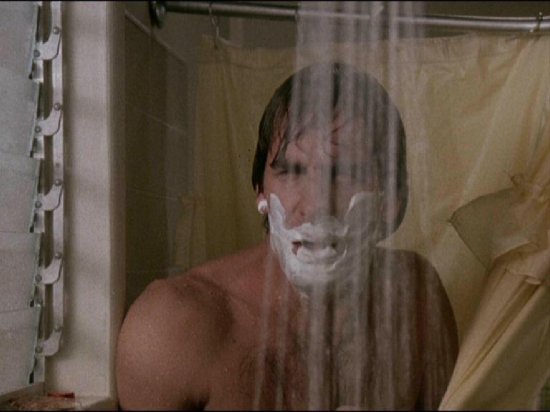
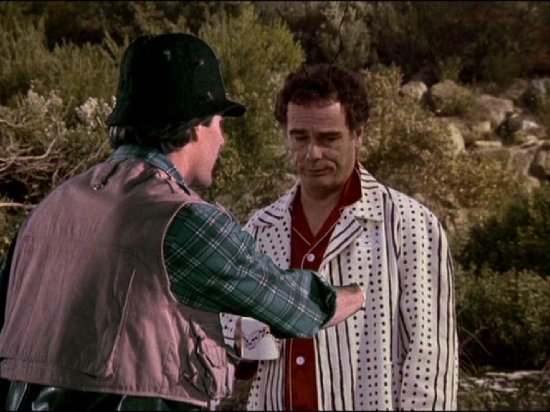
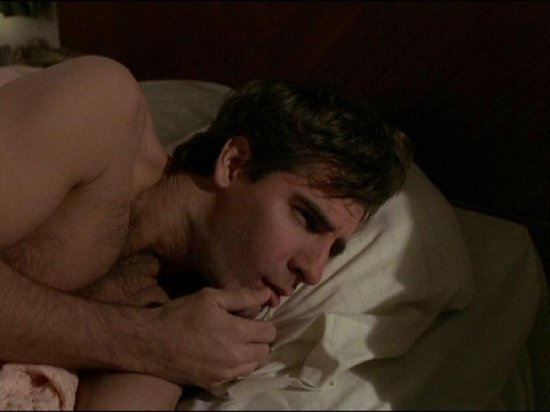
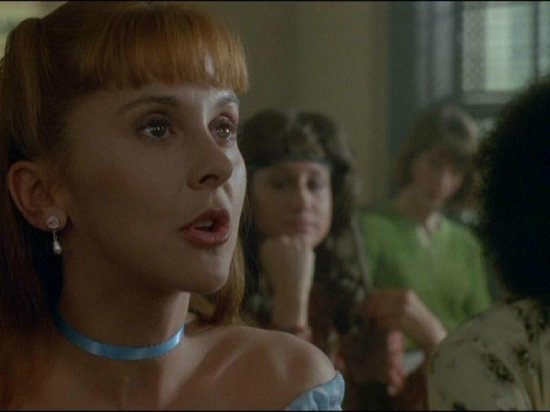
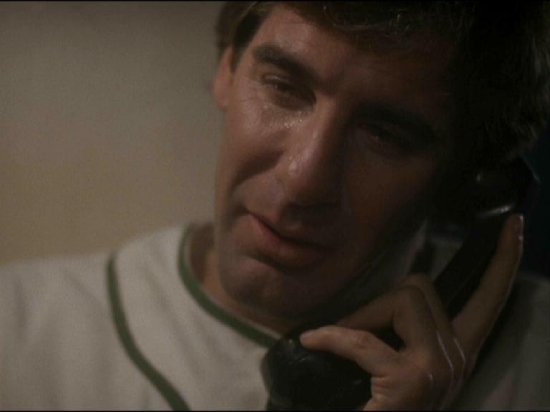
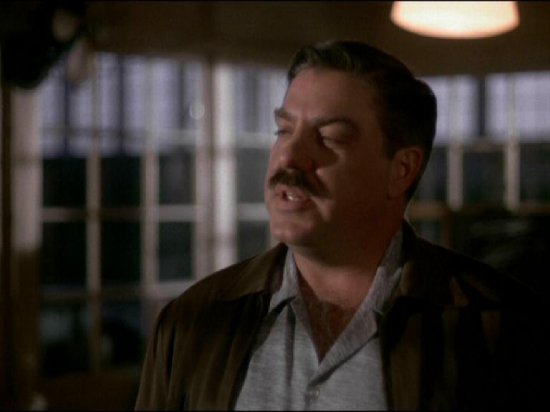
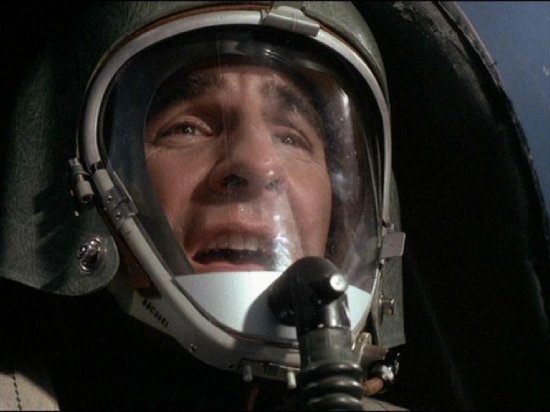
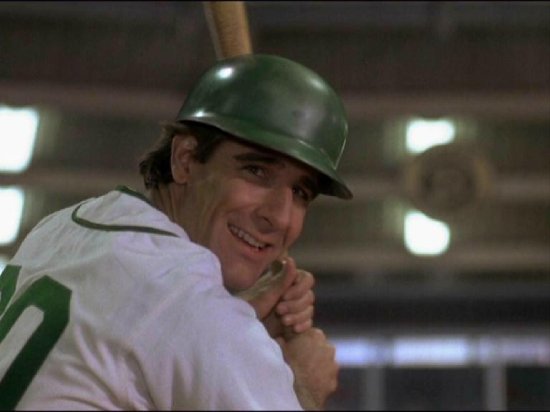
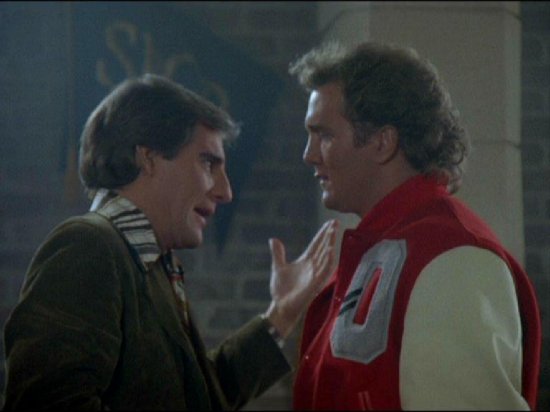
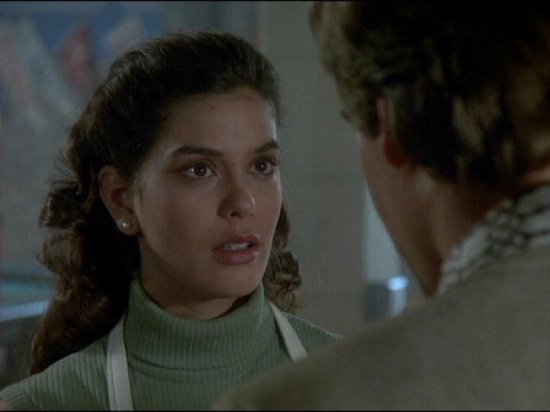
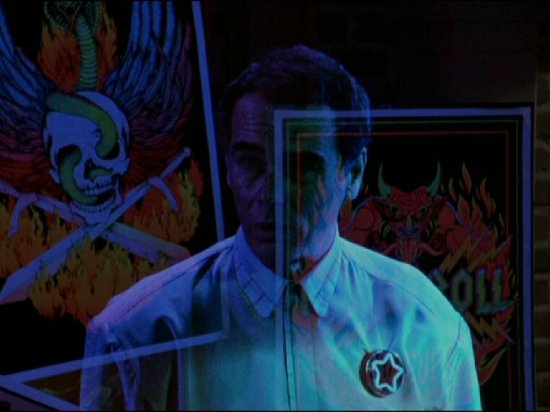
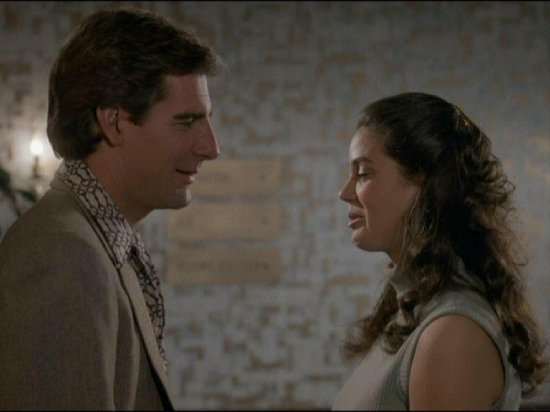
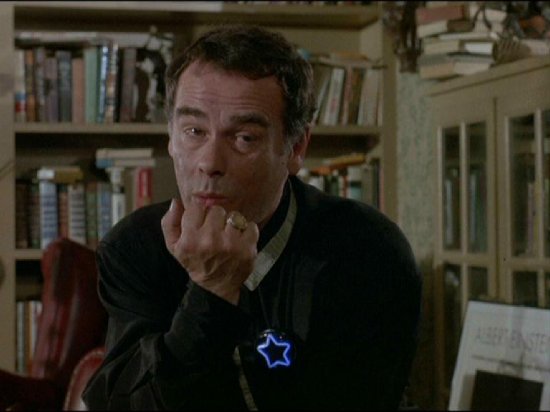
Your Opinions and Comments